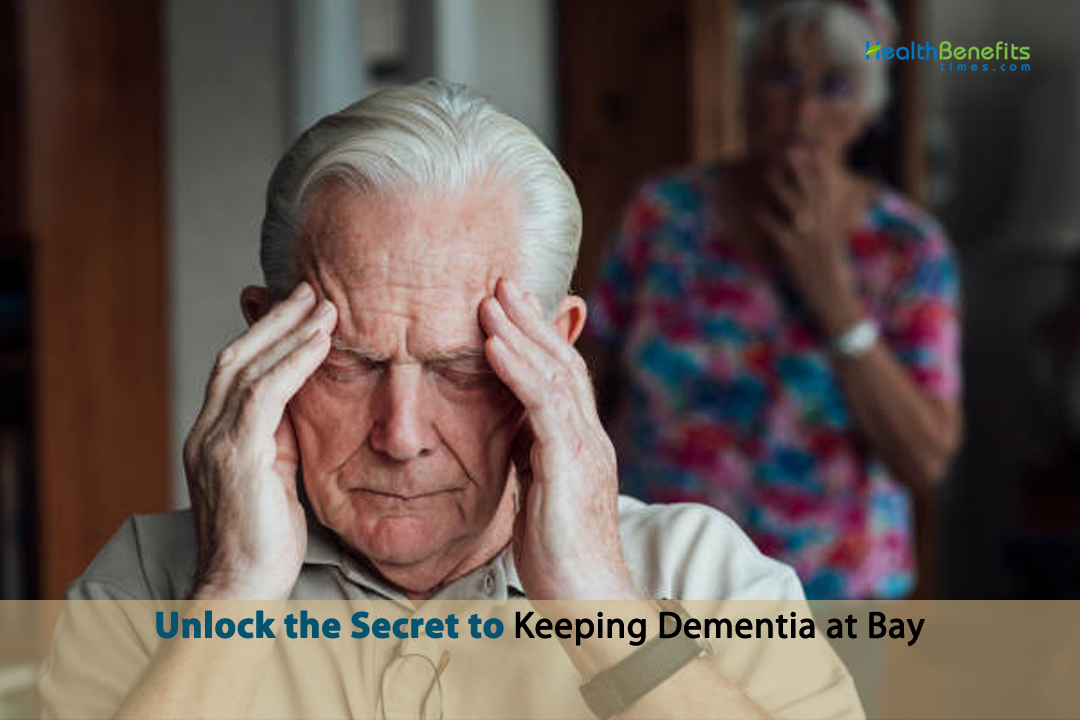
Belly fat is not only bad for your physical health, but it can also hurt your brain, especially for people over 60 with a high BMI and a bigger waist. Fat deposits in the belly shrink the hippocampus, which is the brain’s memory center, and damage the connections between brain cells. Women can improve their brain power and memory by talking to friends on the phone often. High amounts of B vitamins, such as folic acid, vitamins B6 and B12, can stop brain shrinkage in older people showing early signs of Alzheimer’s disease.
A proton magnetic resonance spectroscopy MRI scan can detect big changes in the brain, allowing doctors to start treatment right away. While the children of someone with Alzheimer’s have a slightly higher chance of getting the disease themselves, living a healthy lifestyle can help lower the risk of developing the disease. Some herbs and spices can help slow down the development of Alzheimer’s disease by improving circulation and easing mood swings, anxiety, and sleep problems. It’s important to talk to your doctor before taking any new vitamins or medicines.
Reduce your abdominal size
Doctors have been warning for years that belly fat is bad for your health, especially when it comes to heart disease, diabetes, and cancer. But did you know that having too much fat around your middle can also hurt your brain? Recent study from Korea shows that people over 60 with a high body mass index (BMI) and a bigger waist are more likely to lose their memory and get dementia. This is because fat deposits in the belly shrink the hippocampus, which is the brain’s memory center, and damage the connections between brain cells, which is often called “brain rust.” This makes it harder for older people to remember things and think clearly, and it also makes them more likely to get dementia. To protect your brain health, you need to talk to your doctor as soon as possible about how to lose those extra inches around your waist.
Engage in conversation
Recent study from the United States shows that women, in particular, can improve their brain power and memory by talking to friends on the phone often. The study found that women who talk to many friends every day are less likely to get dementia as they get older than those who mostly talk to their partner at home. Keeping in touch with friends and family on a daily basis, whether through phone calls, emails, or social media, can be good for your brain in many ways. So, pick up the phone and stay in touch with the people you care about to protect your brain health in the long run.
Boost your Bs
Scientists at Oxford University in the UK have found that high amounts of certain B vitamins can stop brain shrinkage in older people who are showing early signs of Alzheimer’s disease. Folic acid and vitamins B6 and B12 are some of the vitamins in play. They help control the amount of homocysteine in the blood. High amounts of homocysteine have been linked to a faster shrinking brain and a higher chance of getting Alzheimer’s disease. The study found that older people at risk of Alzheimer’s could stop their brains from shrinking by 30% by taking a lot of B vitamins. But it’s important to remember that taking more vitamins than the recommended daily amount can be dangerous. Before taking any new vitamins or medicines, you should always talk to your doctor.
Obtain a quick evaluation

A type of MRI scan called proton magnetic resonance spectroscopy has made it possible to find Alzheimer’s disease early. This is a good thing. This tool can find big changes in the brain, even in people who aren’t showing any signs of mental decline yet. Early diagnosis of Alzheimer’s is important because it lets doctors start treatment right away, which can slow the disease’s development. Also, early testing can sometimes rule out Alzheimer’s as a diagnosis, which lets doctors treat the real cause of the symptoms. If you think your symptoms might be signs of Alzheimer’s, it’s important to talk to your doctor about the tests and screenings you can take to get diagnosed and treated as soon as possible.
Make sure you understand the risk.
Even though the children of someone with Alzheimer’s have a slightly higher chance of getting the disease themselves, that chance is still pretty low. This is because the disease can be caused by up to 100 different genes, and it’s rare that a child would get all of the genes that make them more likely to get the disease from a parent who has it. If your parent has Alzheimer’s, the best thing you can do is live as healthily as possible. This will give you the energy and strength you need to care for your parent, and it will also help lower your already low risk of getting the disease. Remember to put a healthy diet, regular exercise, and other healthy living choices at the top of your list to help your own health and the health of those you care about.
To prevent mental deterioration, try herbs
Some herbs and spices have been shown to help slow down the development of Alzheimer’s disease by improving circulation and easing the mood swings, anxiety, and sleep problems that are often caused by the disease. Here are some natural treatments that have been recommended:
Take two 500 mg pills of American ginseng with breakfast and lunch.
- Take 20–40 drops of Schisandra liquid in water three times a day.
- Herbal teas: To calm down, drink a tea made from dried lemon balm leaves, passionflower, or California poppy.
- Ginkgo biloba: Older people, especially those with narrowed arteries, can take a supplement of this blood-thinning antioxidant herb to increase blood flow to the brain. This may slow the growth of Alzheimer’s disease.
- Sage: Sage has been used for a long time as a way to improve mental function, and modern science says that it may work by increasing the chemical acetylcholine in the brain. Sage goes well with meat and chicken, or you can boil a few leaves in water to make a tea.
- Turmeric: This pungent yellow spice is used a lot in Ayurvedic medicine. It includes curcumin, which is thought to stop the buildup of amyloid plaques in the brain, which is what causes Alzheimer’s. In fact, the low rate of Alzheimer’s disease in India may be because of the curcumin in their food. Only 1 in 100 people 65 and older in Indian areas have Alzheimer’s, which is the lowest rate in the world.
Utilize it or lose it

Mentally challenging work can help connect brain cells in a way that acts as a “cognitive reserve,” which can help keep Alzheimer’s disease at bay later in life. In fact, new study suggests that people who have done mentally stimulating things on a regular basis throughout their lives tend to have fewer amyloid plaques in their brains, which are the most obvious sign of Alzheimer’s. For example, a small US study found that about one-third of people in their 60s who got Alzheimer’s had the least mentally demanding jobs between the ages of 20 and 50. On the other hand, a UK study of people with early signs of dementia found that those who kept working even after being told they had dementia kept their brains working the best for the longest. If you don’t have a job that requires a lot of mental work, there are many things you can do at home to keep your brain healthy, such as:
- Play computer games
- Solve puzzles
- Read and write regularly
Visit an eye doctor
Not only are regular eye checks important for keeping your eyesight in good shape, but they can also help older people keep their minds sharp. In fact, when older people lose their sight, they often also lose their memory and other thinking skills. For example, people with “wet” age-related macular degeneration (AMD) who don’t get treatment and lose their vision as a result tend to have worse memories than those who do get treatment. Also, study shows that some older people with mild Alzheimer’s disease improved in their ability to think, how they slept, and how they felt after successful cataract surgery. This suggests that keeping your eyes healthy with regular eye exams and the right treatments can help keep your mind healthy as you get older. So, don’t forget about your eye health and make sure to see your eye doctor regularly.
Take NSAIDs as directed
New research shows that people with rheumatoid arthritis who take non-steroidal anti-inflammatory drugs (NSAIDs) to relieve joint pain caused by inflammation are less likely to get Alzheimer’s disease than those who don’t take NSAIDs. Doctors think this might be because anti-inflammatory drugs can lower inflammation in the brain, which is thought to be a factor in cognitive decline. The strong anti-inflammatory drugs used to treat arthritis are currently being tested to see if they can help people who have already been diagnosed with Alzheimer’s. However, it’s important to remember that NSAIDs can have unwanted and sometimes dangerous side effects. As of right now, there is no reason to take NSAIDs to protect against Alzheimer’s. If you have rheumatoid arthritis and want to take NSAIDs to relieve joint pain, it’s important to talk to your doctor so you can weigh the benefits against the risks.
Go the additional distance

Research shows that your chance of getting Alzheimer’s later in life goes down the more busy you are between the ages of 20 and 59. Also, exercise is still good for you even after you turn 60. For example, a US study of retired men aged 71 to 93 found that those who walked less than a quarter of a mile a day were twice as likely to get dementia as men who walked more than two miles a day. In another US study of women ages 70 to 81, even those who only walked for 1.5 hours a week did better on tests of mental ability than women who didn’t move around as much. This shows how important it is to stay active, especially if you have a past of Alzheimer’s disease in your family. So, make sure to stay active and exercise as much as you can to keep your brain and body fit.
Learn more about “mindfulness training”
Recent study done in Stockholm, Sweden suggests that people who are calm and have a positive view on life are less likely to get Alzheimer’s disease than those who are easily upset or have a negative outlook. In fact, the disorder is less likely to happen to people who are calm, friendly, and open. But how can people who tend to be more gloomy about life change their minds and see things in a more positive light? “Mindfulness training” is a type of meditation that tries to make people more compassionate, curious, and aware of the present moment. It may be helpful. Mindfulness has been shown to reduce stress and keep people from getting depressed. This could help people have a more positive view on life and possibly lower their risk of getting Alzheimer’s disease. So, if you’re stressed out or having trouble with negative thoughts, you might want to try mindfulness training or other forms of meditation to help you have a more positive outlook and improve your general health.
You can achieve positive changes if you;
- Try to set aside a few minutes each day to focus on your breath and do deep breathing techniques. This can help you relax and feel less stressed.
- Schedule a regular massage: Think about making massage a regular part of how you take care of yourself. Any kind of massage can be good for you as long as it helps you rest and doesn’t get in the way of your daily life.
- Try yoga. Yoga is a great way to get rid of stress, get more flexible, and rest. Find a class that fits your level of experience and flexibility. It’s never too late to start doing yoga.
- Take a break: Taking breaks from your normal stresses and strains is important. Getting away from your daily habit, even for a short time like a weekend, can be good for your mental and physical health in the long run.
By adding these relaxation methods to your daily routine, you can help to reduce stress, promote relaxation, and maybe even lower your risk of getting Alzheimer’s disease.
Deal with sleep apnea
Sleep apnea is a disease in which breathing stops for a few seconds or even minutes while sleeping. Six out of ten elderly people have this problem. Scientists who wrote about the disorder in the Journal of the American Medical Association say that if it isn’t treated, it can lead to low amounts of oxygen in the blood, which makes dementia more likely. The study found that just under half of those with sleep apnea got cognitive impairment or dementia, while only about one-third of those without the problem did. Sleep apnea is usually treated with a plastic sleep mask that is connected to a small machine that sits next to the bed. This machine makes enough air pressure to keep the airways open while sleeping. Treatment is necessary to lower the chance of dementia and other mental problems that come with the disorder. So, if you think you or a loved one might have sleep apnea, it’s important to talk to a doctor about the different ways to treat it.

